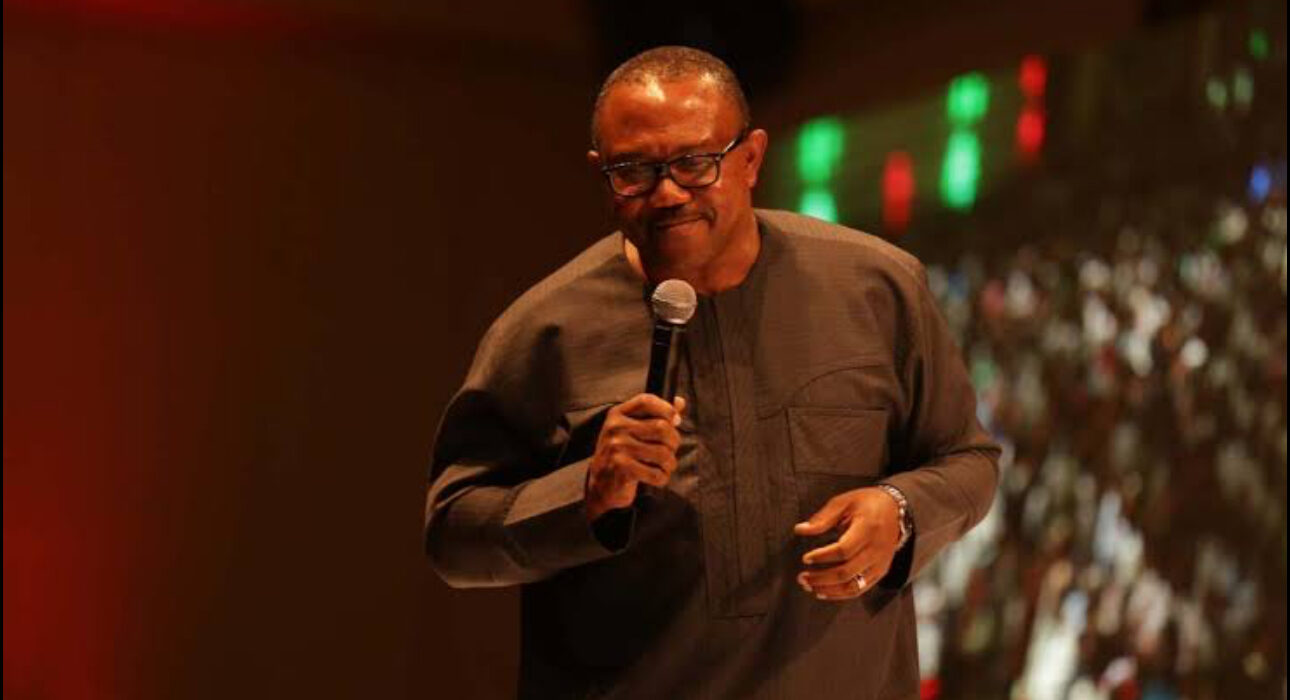Peter Obi, Not Man of his Words, Put on Spotlight by Oye Over Vow not to Dump APGA

A recent Channels Television clip has stirred political discourse across Nigeria, as it features a dramatic exchange of views between former Anambra State Governor and Labour Party presidential candidate, Peter Obi, and the National Chairman of the All Progressives Grand Alliance (APGA), Victor Oye, over Obi’s past with the party and a controversial vow he allegedly made.
The video, which is now widely circulating on social media, includes three distinct segments: a recent comment from Obi stressing political consistency over party affiliation, a sharp rebuttal from Oye who invokes a past “vow,” and a throwback clip showing Obi’s public declaration of lifelong loyalty to APGA.
In the first part of the clip, Peter Obi reflects on Nigeria’s political landscape, emphasizing that good governance is not determined by political party but by a leader’s integrity and focus.
“Politics is not about running from one place to the other,” Obi said. “Whatever you can do, you can do it from wherever you are and do it properly.”
He invoked the words of former Lagos State governor Babatunde Fashola:
“Fashola said, doing good work has nothing to do with party or coloration.”
Obi continued:
“You have to be consistent. Leadership is about staying focused. Know what you said yesterday and feel it today. If there’s a disagreement, say it openly. When it ends, move on.”
His remarks appeared to be a broader commentary on the frequent party defections in Nigerian politics, urging politicians to uphold their convictions regardless of party platforms.
In the second segment, Victor Oye issued a striking response, turning attention to Obi’s past association with APGA and accusing him of breaking a solemn vow.
“Unless Peter Obi, my brother, returns to APGA, he will not achieve anything politically,” Oye declared. “He took a vow that he would never leave APGA.”
Oye then claimed Obi’s vow was more than a political statement:
“He said that any day he leaves APGA, let his entire family die. He said it—you know.”
He questioned the logic behind making such a vow, only to abandon the party later:
“He left APGA and joined the PDP. He was Vice Presidential candidate to Atiku. Now he’s running for President. It will be a catastrophic exercise—it will not work. And the reason is because of the vow.”
Oye compared the alleged vow to the sacred nature of marriage vows, suggesting that such commitments carry consequences when broken.
The final part of the video features an archival clip of Peter Obi during his tenure as governor of Anambra State. In it, Obi passionately reaffirms his loyalty to APGA:
“In the year 2002, I said I will not leave… I will die with APGA.”
Though this clip shows Obi expressing a deep commitment to the party, it falls short of confirming the life-and-death vow claimed by Oye. Still, its inclusion in the video gives weight to the chairman’s argument and has reignited scrutiny of Obi’s political trajectory.
The video has triggered a flurry of reactions across political lines. Supporters of Peter Obi argue that his evolution—from APGA to PDP and eventually the Labour Party—reflects a shift toward national politics and broader ideals. Critics, especially from APGA, have seized the moment to question his consistency and moral standing.
Obi has yet to respond directly to the resurfaced footage or Oye’s allegations, but political observers believe the controversy could play into wider narratives as Nigeria approaches another election cycle.
In the meantime, the clip has added fuel to ongoing debates about loyalty, ambition, and the ethical responsibilities of political leaders in Nigeria’s turbulent democracy.








